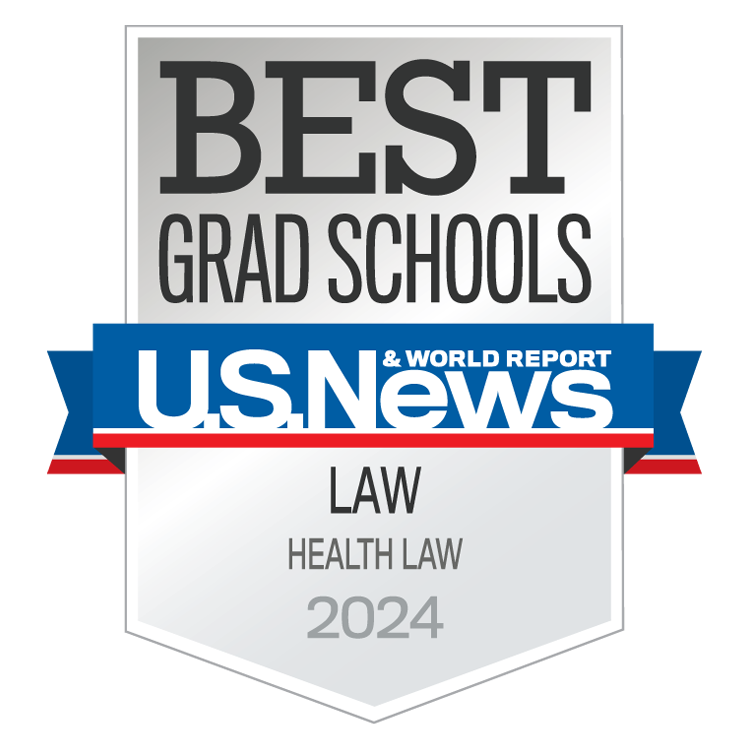
 Mitchell Hamline now offers a Health Law Certificate with a Concentration in Food Law
Mitchell Hamline now offers a Health Law Certificate with a Concentration in Food Law
Few things influence our health more than the food we put in our bodies, underscoring the importance of a robust regulatory framework. Food-related laws protect the public and empower consumers with information to make better choices about the food they put on their tables.
Years in the making, the Health Law Institute now offers a Health Law Certificate with a Concentration in Food Law (HLC-CFL). The HLC-CFL includes a curriculum designed to educate law students about the complex legal, policy and key business issues influencing the food system on a state, national and global level. Students will develop the skills and knowledge to serve clients involved in the production, manufacturing, processing, handling, storage, transportation, marketing, sale, consumption, disposal, and sustainability of food. They will also gain an appreciation for how advocacy groups work to shape policy.
Learn more about our certificates.
 Mitchell Hamline’s Food Law Center brings industry leaders to the classroom
Mitchell Hamline’s Food Law Center brings industry leaders to the classroom
The advisory board for the Food Law Center (FLC) has played a key role in working with the Health Law Institute on the creation of the HLC-CFL. Additionally, several of the advisory board members serve as adjunct professors bringing their wisdom, expertise, and practical experience to Mitchell Hamline. As experts in food law, they integrate their own experiences in representing clients into the classroom, providing students with first-hand knowledge on the most cutting-edge legal and policy issues facing our food systems.
Their passion for teaching and mentoring the next generation of legal professionals creates a dynamic learning environment that prepares students to excel in their careers in food law.
Jennifer Abrahamzon ’09 JD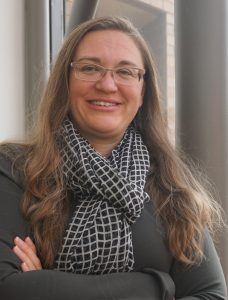
Regulatory Counsel, FDA Center for Veterinary Medicine
Food Safety and the Law – Adjunct Professor
Tell us about your background and why you chose to specialize in food law.
I grew up on a farm in southeastern Minnesota and in college I majored in biology and political science before attending law school. Every time I told people my background, they were like, “That’s an interesting combination. What are you going to do with it?” After law school, I got a job working for the Minnesota Department of Agriculture doing food law regulatory work, which was the perfect fit for my unique background. Eventually, I took a position at the FDA specializing in animal food law, which has brought me closer to my agricultural roots.
Can you give us an example of why food laws and regulations are so important to consumers?
We eat every day! There are very few specialties in law that impact people’s everyday life in such a profound way by making sure the food we eat is safe and nutritious. In my work, I also make sure that the food we feed our pets is safe, as well as ensuring that animal-derived food we eat (like milk, meat, eggs, and honey) is safe because the food those animals eat is safe.
What motivated you to get involved with the FLC?
When I was in law school, there were not any courses that focused on food law—it was just a footnote in other courses. It has been exciting to work with such a great group of accomplished professionals in the food law space to build a program that really prepares law students for this line of work. There are so many different types of legal roles in food law available—whether that’s working for a regulatory agency, litigating for consumers or companies, or working within a food company.
What’s something people might not know about you?
After I started law school, I actually quit and worked in a research lab at Mayo Clinic for a year. Then I decided I really did want to finish law school and came back. I had fantastic support from a few mentors at school that helped me make those decisions and supported me as I finished school. I’m so grateful for those experiences and that support because I love my career. The FLC has focused on building courses that are a part of the blended-learning program, which allows students to attend law school in a more flexible way. A lot of the students I have taught are mid-career or have other life obligations, and this flexibility is allowing them to succeed in law school. Life is not always a straight, clear path and that’s okay—enjoy the journey!
Abdur Rahman Amin ’23 JD, MBA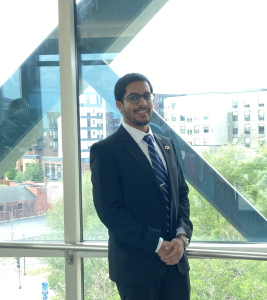
Senior Safety Professional, Disneyland Resort – The Walt Disney Company
Food Law – Assistant Adjunct Professor
Tell us about your background and why you chose to specialize in food law
I have a mixed background that led me to food law. My undergraduate degree was in public health. Then I completed a master’s degree in business administration before attending law school. I work as a food safety professional specializing in restaurant and retail food safety and regulatory compliance. Before that, I was a lab, food safety, and quality assurance manager for a large quick-service restaurant chain. I chose to specialize in food law because my experiences as a food safety professional taught me the importance of the regulatory arm which drives compliance and food safety for our food systems. While I could continue to make an impact as a technical or scientific subject matter expert, I am most impactful by leveraging and combining my technical and legal backgrounds to enhance and protect our food systems.
Can you give us an example of why food laws and regulations are important to consumers?
Food laws and regulations protect both our food supply and consumers. For instance, rules against the adulteration of food products give consumers confidence that our food supply is robust and safe. Regulatory enforcement and recalls ensure that affected products are removed from the supply chain and the commerce stream. Local health department ordinances that prevent sick workers from working help mitigate the prevalence of foodborne illness. Nonetheless, opportunities persist. We still see recalls and outbreaks. This indicates that more work can be done to further safeguard consumers and our food supply.
What motivated you to get involved with the FLC?
The Food Law Center has a robust team of experts who specialize in all aspects of food law. There are experts in academia, industry leaders, and legal professionals eager to foster this emerging and much-needed area of law. As a Mitchell Hamline alumnus, who took classes under the FLC, I was inspired by the passion and dedication of the professors, faculty, staff, and board members who are passionate about mentoring the next generation of food law leaders and professionals. I am honored to be a part of that tradition.
What’s something people might not know about you?
I know my way around a grill. I once had to cook and take the temperature of a thousand burger patties in about four hours. While it was done in the interest of science to conduct a “stress test” on the grill, I certainly had my work cut out for me. While the safety and legal aspects of food are some things I am passionate about, I am also always eager to learn about the culinary and cultural traditions behind the foods we consume.
Shirley R. Boyd, JD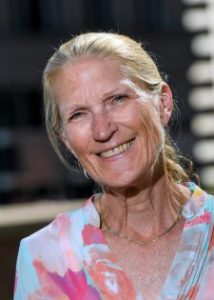
VP and Associate General Counsel (retired), Cargill
Food Labeling & Advertising – Adjunct Professor
Tell us about your background and why you chose to specialize in food law.
I spent my entire legal career working in the Cargill Law Department. I was a commercial lawyer and worked with Cargill’s many food businesses. When Cargill decided to enter the dietary ingredient business in the late 1990s, I realized how little Cargill businesses knew about food laws and regulations. At about the same time, Austin Cargill centralized several Cargill food safety efforts. So, I grew into a commercial lawyer with a lot of food law expertise. Although my original focus was validating claims for our dietary ingredients, I also saw a need for improved basic food safety and nutrition expertise. And the need grew as food safety, nutrition and efficacy- related claims and liabilities increased, globally.
Can you give us an example of why food laws and regulations are so important to consumers?
Government regulation of food is so important because consumers assume food safety is assured in their food and food nutrition and efficacy claims are validated by the USDA and the FDA. Unfortunately, that is not always the case, so companies need to be especially diligent to maintain consumer (and customer) trust and confidence in the quality, safety, and nutritional value of our food.
What motivated you to get involved with the FLC?
I saw food law and litigation as an emerging legal area with significant implications for companies in the food industry. There were several food safety, nutrition and efficacy issues and consumer and customer demands for information that were negatively impacting Cargill and its customers. I wanted to help Cargill and its customers, suppliers and other companies in the food world learn to better navigate, opportunities, and risks and establish trust with consumers. Food law is not as big a specialty as employment, environmental, and intellectual property law, but a critical area for companies like Cargill who operate in many different food supply chains, many different parts of those food chains, and many different countries.
What’s something people might not know about you?
I have run 5 marathons—my first at age 63. I was born in Ithaca, New York, and I love spending time in that area in the summer hiking the trails and seeing a lot of the more than 150 waterfalls in that area.
David Graham ’87, JD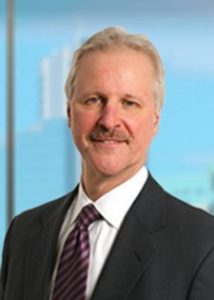
Senior Counsel, Gardner Law Firm
Chair of Mitchell Hamline School of Law’s Food Law Center Advisor Board
Food Law – Adjunct Professor
Tell us about your background and why you chose to specialize in food law.
I graduated from Hamline University School of Law. After graduating I went to private practice in litigation, specializing in defending medical devices and drug litigation. About 20 years ago I got involved in defending a pharmaceutical case involving veterinary medicine in feed. I got to know the person representing the animal feed company and realized there was a food law world. From there I started participating in food bar events and slowly built a practice in food law, both litigating and providing regulatory advice.
What motivated you to get involved with the FLC?
I like food law because of the cultural and policy elements. As a lawyer, I most like defending companies in FDA and USDA enforcement actions and class action litigation. These elements led me to teaching at Mitchell Hamline and the University of Minnesota.
What’s something people might not know about you?
I enjoy training hunting dogs and curling.
 Mitchell Hamline is pleased to share the winners of the 5th annual Roy Snell Health Care Regulatory & Compliance Writing Competition in 2024 and announce the 2025 competition
Mitchell Hamline is pleased to share the winners of the 5th annual Roy Snell Health Care Regulatory & Compliance Writing Competition in 2024 and announce the 2025 competition
The competition continues to attract outstanding health law students from around the country.

The 2025 competition’s registration is now open. It will run from Monday, February 3, 2025 until Monday, March 17, 2025.
All registered students will be sent the Competition Problem after registration closes. They will have six weeks to read it, then write and submit their memorandum and PowerPoint submissions. The top three winners will receive a monetary prize for their work and paid registration for the 2026 HCCA Annual Compliance Institute.
Visit the competition page for more information.
 Mitchell Hamline’s Health Law Institute gives students a competitive edge through a comprehensive approach
Mitchell Hamline’s Health Law Institute gives students a competitive edge through a comprehensive approach
Certificate Specializations: Our Health Law and Health Care Compliance Certificates offer students a specialized and customized curriculum to help them achieve their goals and aspirations and enter the market with a competitive edge. The Health Care Compliance Certificate is one of only a few in the country to be accredited by the Compliance Certification Board (CCB).

